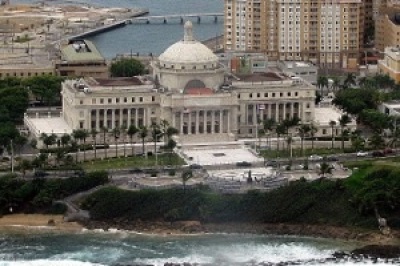Puerto Rico opens door to legalizing same-sex marriage

SAN JUAN, Puerto Rico (Christian Examiner) -- Puerto Rico announced a decision last week to cease defending an article in its civil code that bans same-sex marriage. The move opens the door for the U.S. territory to recognize gay marriages on the island.
The government announcement comes after five same-sex couples appealed to overturn a judge's decision made last October that upheld the ban which the couples' challenged as unconstitutional, LifeSite News reported.
In the Fall, U.S. District Judge Juan Pérez-Giménez wrote in his decision that "because no right to same-gender marriage emanates from the Constitution, the Commonwealth of Puerto Rico should not be compelled to recognize such unions."
The Washington Post reported Pérez-Giménez also stated that marriage is "exclusively [an] opposite-sex institution...inextricably linked to procreation and biological kinship" and claimed "the very survival of the political order depends upon the procreative potential embodied in traditional marriage."
His ruling was appealed to the U.S. Court of Appeals for the 1st Circuit in Boston, and on the final day territory officials had to respond, the attorney general for Puerto Rico announced the U.S. commonwealth no longer would defend the marriage ban.
According to Reuters, Puerto Rico's Governor Alejandro Garcia Padilla, (D), said in a statement the decision was based on the trend across the U.S. as an increasing number of states legalize gay marriage.
"Everyone knows my religious beliefs, but it's not up to political leaders to impose our creeds," Garcia Padilla said. "We have to push for the progress of civil and human rights under equal conditions for everyone."
Religious leaders opposed the government's decision. The Roman Catholic Archbishop of San Juan, Roberto Gonzalez Nieves, urged Puerto Rican's to call for a vote on the abrupt shift in legislation.
"We urge our people to launch a process so that a decision of such historical magnitude and significance can be decided through a referendum in which (voters) can express themselves," the archbishop said. "If not, this would be a dictatorial imposition by the government."